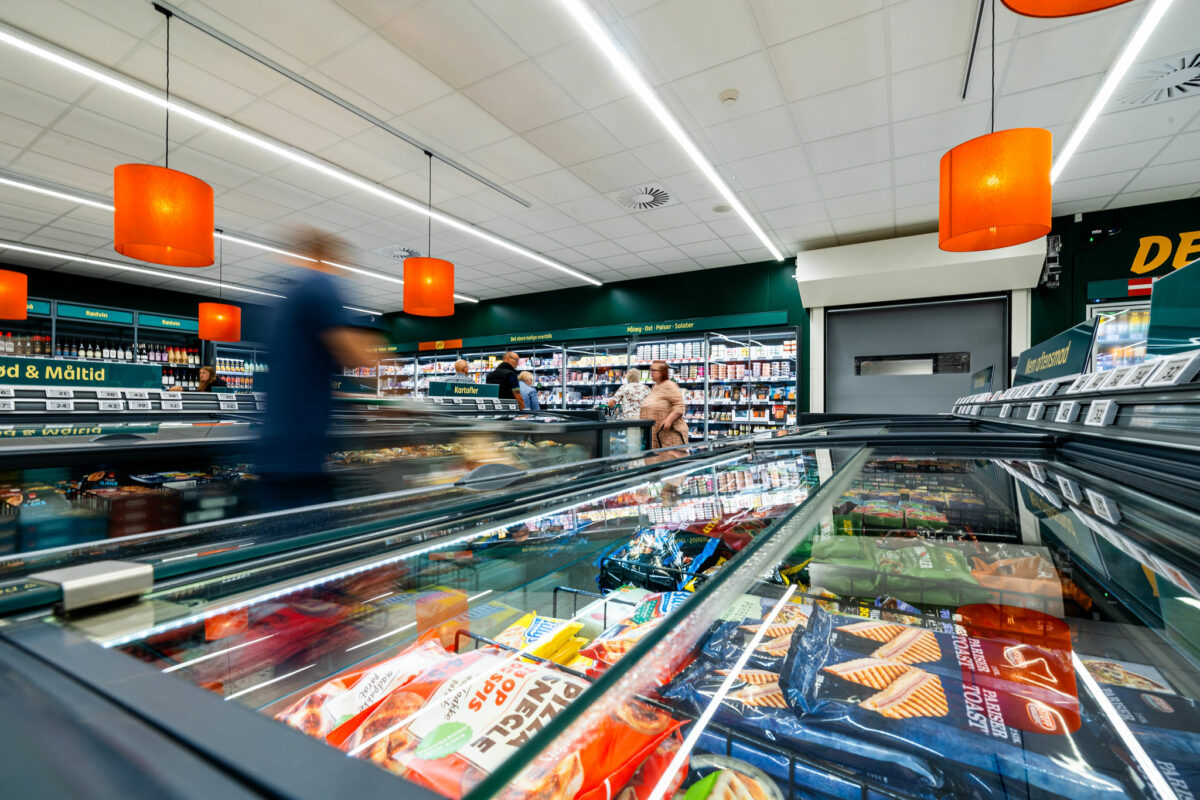German supermarket PENNY launches ‘true cost’ trial to show impact of food products on climate and health

German discounter PENNY is raising the prices of nine food products in a week-long ‘true cost’ campaign, to reflect the real price on the environment and human health of consuming certain foods.
The trial is taking place from 31 July to 5 August 2023 across its 2,150 branches in Germany.
PENNY has partnered with academics at the Technical University of Nuremberg and the University of Greifswald to calculate the true price, which considers how a specific food or drink product impacts the soil, climate, water, and people’s health.
The nine products which will have the true cost stamps include goods from the retailer’s organic and conventional ranges such as, fruit yoghurts, cheese slices, mozzarella, sausages, and vegan schnitzel. The biggest price hike will be seen for the supermarket’s Mühlenhof wiener sausages and Lindenhof maasdamer cheese slices, which are going up from €3.19 to €6.01, and from €2.49 to €4.84 respectively. The price for a plant-based schnitzel in contrast will only jump by 5%, from €2.69 to €2.83.
“We see that many of our customers are suffering from the persistently high food prices. Nevertheless, we have to face the uncomfortable message that the prices of our food, which are incurred along the supply chain, do not reflect the environmental costs”, Stefan Görgens, PENNY COO, said at a press conference. PENNY’s is the largest true cost trial to be carried out by a supermarket in Europe so far, according to Görgens.
As well as raising awareness about the long-term impact of certain foods on the environment and individual’s health, the retailer says it will use the data collected from the campaign to develop solutions with the two universities that could help consumers buy healthier and more sustainable food in the future.
Professor Tobias Gaugler from the Technical University of Nuremberg explained in a statement: “We receive comprehensive data about the campaign week, but also about comparison weeks and socio-demographic information. We can certainly gain valuable insights into purchasing behaviour and acceptance of the topic. From this, recommendations for action for the various actors can be derived, above all to design sensible political measures that contribute to a sustainable transformation of the food sector – for consumers and producers.”
Dr Amelie Michalke, Sustainability Scientist at the University of Greifswald added: “It’s not about immediately introducing the true cost of all food. There is a lack of comprehensive scientific groundwork and answers to central questions of social justice. We hope [this initiative] will give us a strong motivation to discuss and consider food prices in a different and fairer way”.
PENNY says it will donate the surplus money made from the sales of the true cost goods to the Zukunftsbauer (Future Farmer) charity, which helps family-run farms who are part of the Berchtesgadener Land dairy co-operative in Bavaria reduce the climate impact of their dairy production.
The true price scheme is a growing trend in European supermarkets. Earlier in March, Dutch retailer Albert Heijn introduced the initiative at some of its ‘to go’ stores in the Netherlands for a cup of coffee. When buying the drink, shoppers can see the retail price as well as the added social and environmental costs. For example, if they buy a cappuccino with cow’s milk, they will pay more than for one made with oat milk because of its larger carbon footprint.









